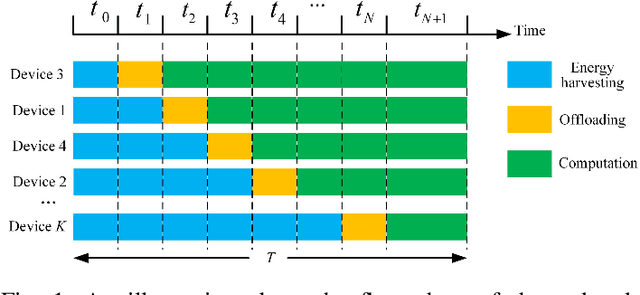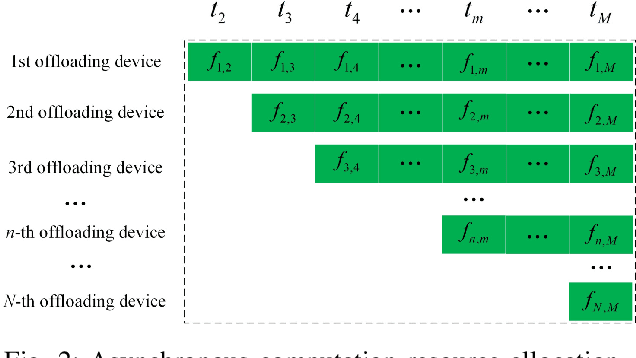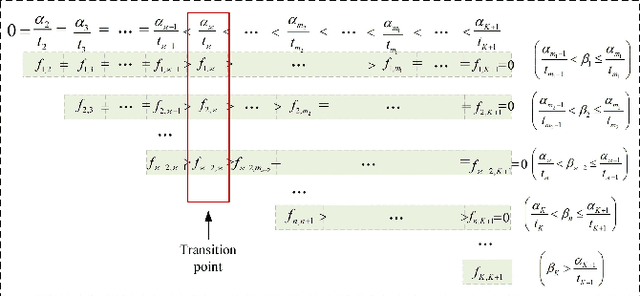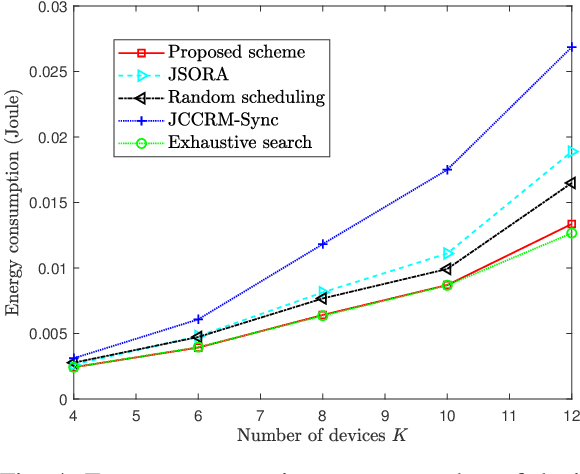Joint User Scheduling and Computing Resource Allocation Optimization in Asynchronous Mobile Edge Computing Networks
Paper and Code
Jan 21, 2024



In this paper, the problem of joint user scheduling and computing resource allocation in asynchronous mobile edge computing (MEC) networks is studied. In such networks, edge devices will offload their computational tasks to an MEC server, using the energy they harvest from this server. To get their tasks processed on time using the harvested energy, edge devices will strategically schedule their task offloading, and compete for the computational resource at the MEC server. Then, the MEC server will execute these tasks asynchronously based on the arrival of the tasks. This joint user scheduling, time and computation resource allocation problem is posed as an optimization framework whose goal is to find the optimal scheduling and allocation strategy that minimizes the energy consumption of these mobile computing tasks. To solve this mixed-integer non-linear programming problem, the general benders decomposition method is adopted which decomposes the original problem into a primal problem and a master problem. Specifically, the primal problem is related to computation resource and time slot allocation, of which the optimal closed-form solution is obtained. The master problem regarding discrete user scheduling variables is constructed by adding optimality cuts or feasibility cuts according to whether the primal problem is feasible, which is a standard mixed-integer linear programming problem and can be efficiently solved. By iteratively solving the primal problem and master problem, the optimal scheduling and resource allocation scheme is obtained. Simulation results demonstrate that the proposed asynchronous computing framework reduces 87.17% energy consumption compared with conventional synchronous computing counterpart.
 Add to Chrome
Add to Chrome Add to Firefox
Add to Firefox Add to Edge
Add to Edge